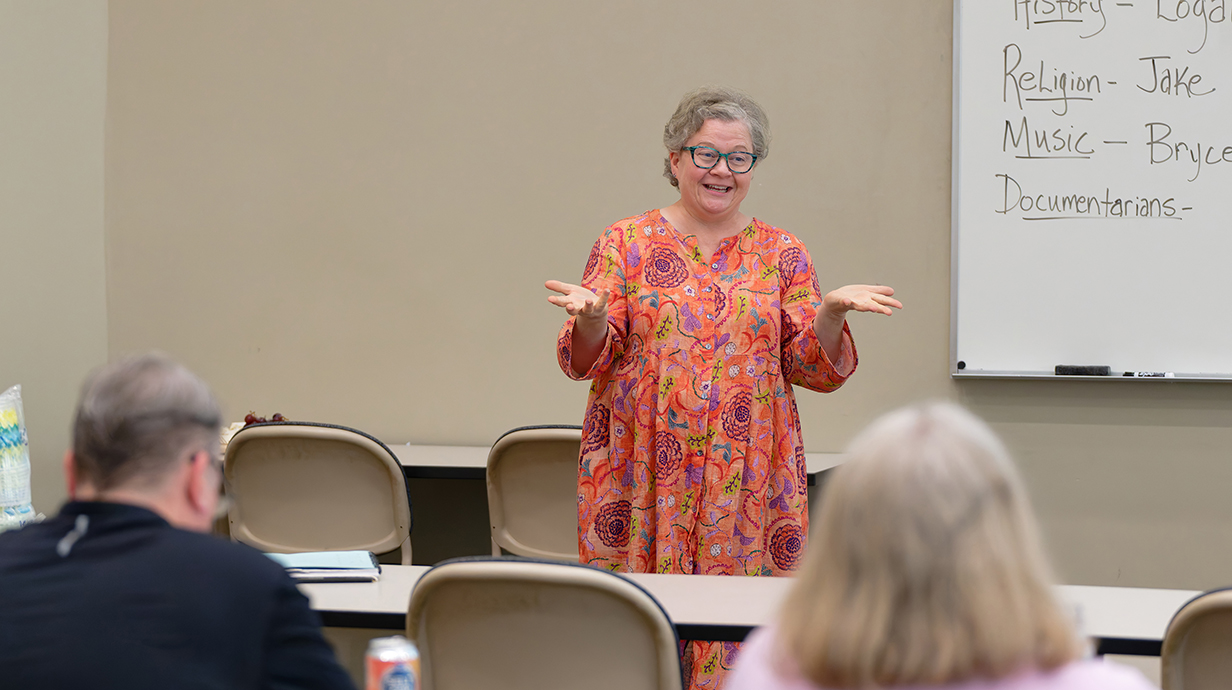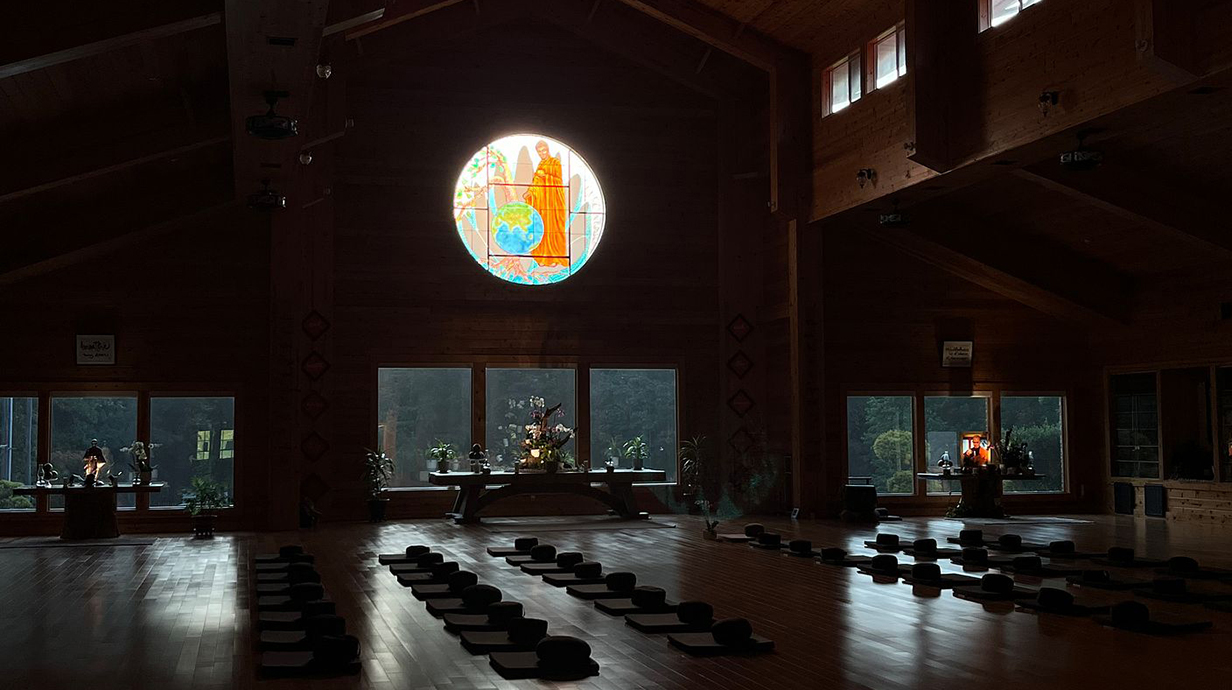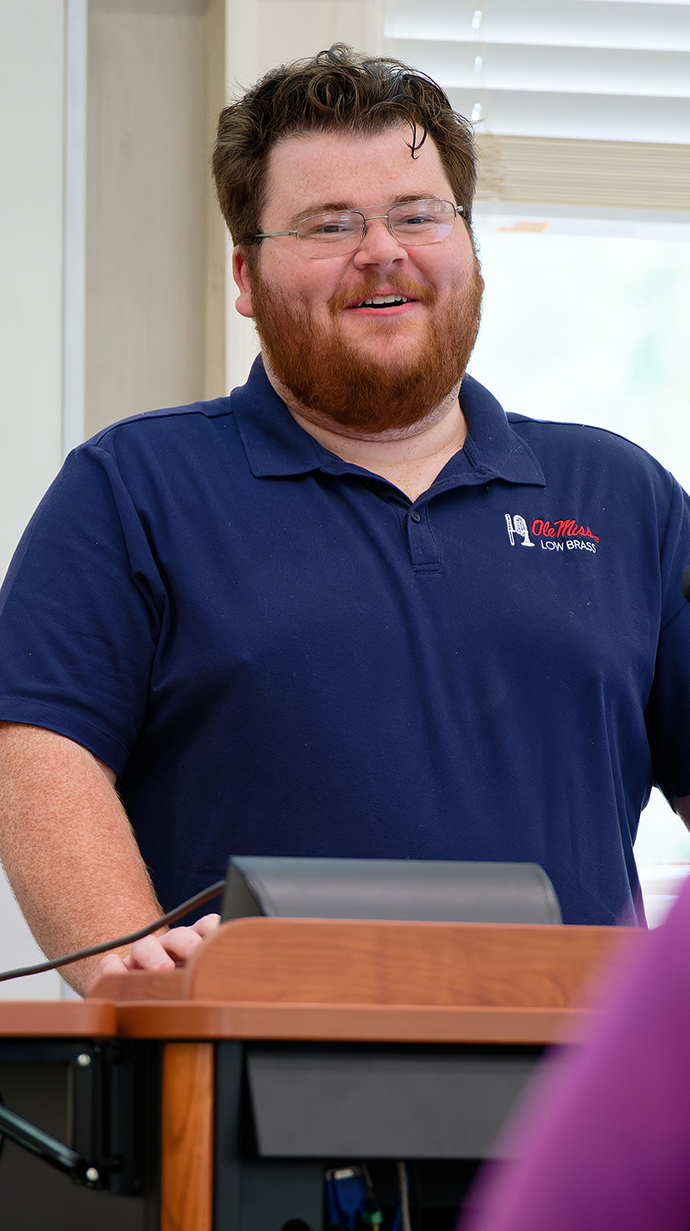Interactive Website Maps Religious Diversity Across Mississippi
Inaugural Ole Miss student cohort blends technology, history and music to launch site

OXFORD, Miss. – A new University of Mississippi project maps the state's often-overlooked religious diversity, blending historical research, video interviews and sacred music to spotlight faith communities across Mississippi.
Religious studies professor Mary Thurlkill created the interactive Religious Diversity in Mississippi website to chart the state's contemporary and historical spiritual landmarks on a rolling basis. The project launched this month with an inaugural five-student cohort who are researching and organizing details of the first featured location, Magnolia Grove Monastery in Batesville.
"I hope it can be a site that is of use for everybody," Thurlkill said. "I would love for public school teachers to share this site with their social studies classes, and their students can build projects over this and for politicians to be able to look at the county and the districts they represent and see how diverse their population is that they're representing and consider the implications and complications of legislation being considered."

Magnolia Grove Monastery in Batesville is the first religious site featured on the Religious Diversity in Mississippi website. The monastery has a rich, international history and hosts several public events focused on mindfulness. Submitted photo
The one-stop, interactive resource comes to life with technical support from Adam Clemons, assistant professor of scholar support and data services at the J.D. Williams Library. As it takes shape, Thurlkill sees the website filling a need for people moving to and throughout Mississippi in search of a new place of worship.
"There's not an easy place to google religious diversity in Mississippi or even how many Buddhist or Hindu temples there are," she said. "There was no one central place."
The student experience was funded by the William Hal Furr endowment, established by his family to honor the beloved philosophy and religion studies professor who died in 1974.
The five students come from Ole Miss' history, music, religious studies, film studies and Southern studies departments. The interdisciplinary makeup of the group is critical in bringing the map's first featured site to life.
For example, users can learn about foundational practices at Magnolia Grove and founder Thich Nhat Hanh's connection to Martin Luther King Jr.
The group shared some of those facts on May 23 in Bryant Hall as they unveiled the site.

Bryce Ledet, a senior music major from Hazlehurst, was aware of the powerful chants associated with monks, but he was surprised to discover the Panola County monastery is home to a surprisingly eclectic mix of musical diversity. He plans to pursue a doctoral degree in musicology and is excited to help showcase how the historic site's music includes everything from cellos and guitars to collaborating with rap music artists.
"There is so much to learn," Ledet said. "We want to document all these incredibly rich histories and show that Mississippi has this great cultural background that you don't often get to see."
A hunger for learning about different religions struck Ledet after his leap of faith from atheism to Christianity at age 18. Even in its early stages, this multimedia hub makes it easier to feed religious curiosity with access to information that can speak to different users in different ways.
"Our state's culture is made by so many different cultures colliding together," Ledet said.
"Music is a universal language that connects the world, allowing the performer to speak to another's heart. Its inclusion in nearly every religious practice is no coincidence. Humans and music are inseparable."
Highlighting Magnolia Grove Monastery's spirit is just the start, Thurlkill said. She has proposed using Second Baptist Church in Oxford as the next featured site.
She envisions working with future student cohorts, professors outside her department and historians to share that the South's religious identity is not just a homogenous culture of mostly Protestant Christians.
"They will be able to identify their own sites and then add that information," Thurlkill said.
"I would love to be able to work with other universities in Mississippi because it would be somewhat difficult, for example, to go down to a Buddhist monastery on the coast. But (University of) Southern Mississippi has religious studies professors, and I would love if we could make this collaborative throughout the state."
Top: Mary Thurlkill, a professor of religion, discusses the Religious Diversity in Mississippi project, which she created to spread awareness and understanding of the state’s faith communities. Photo by Hunt Mercier/Ole Miss Digital Imaging Services
By
Marvis Herring
Campus
Office, Department or Center
Published
May 30, 2025
